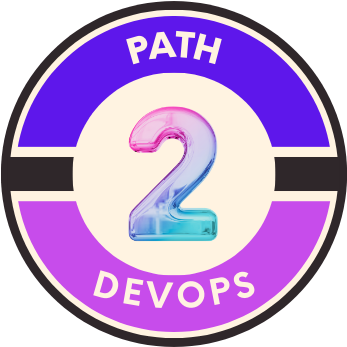The Path to DevOps: A Transformational Journey
DevOps has revolutionized the way modern businesses approach software development and operations. It is a journey that empowers organizations to achieve operational excellence by breaking down silos, fostering collaboration, and embracing automation. In this blog post, we will explore the key steps on the path to DevOps and how they can unlock the power of this transformative approach.
Step 1: Embrace the Fundamentals
The first step towards achieving DevOps excellence is to understand the fundamentals of software development, system administration, and operations. A solid foundation in Linux, the operating system of choice in the DevOps world, is essential. Familiarize yourself with essential command-line tools and learn how to navigate, manage files, and perform basic operations. This will lay the groundwork for your journey towards becoming a DevOps professional.
Additionally, gaining knowledge of cloud platforms such as AWS, Azure, and GCP will be invaluable. These platforms provide the infrastructure and services necessary for building scalable and resilient systems. Understand the different offerings and learn how to leverage them effectively to achieve operational efficiency.
Step 2: Containerization and Orchestration
Containerization is a game-changer in the world of software development and deployment. Docker, the leading containerization platform, enables you to package applications along with their dependencies into lightweight containers that can run consistently across different environments. Dive into the world of Docker, learn how to create and manage containers, and explore the Docker ecosystem.
When it comes to managing containerized applications at scale, Kubernetes is the go-to orchestration platform. Kubernetes automates the deployment, scaling, and management of containerized applications, allowing you to focus on delivering value. Familiarize yourself with Kubernetes concepts, such as pods, services, and deployments, and learn how to leverage the power of this orchestration tool.
Step 3: CI/CD Practices and Infrastructure as Code
Continuous Integration and Continuous Delivery (CI/CD) practices are at the heart of DevOps. Tools like Jenkins and GitLab CI/CD enable teams to automate the software delivery process, from building and testing to deploying and monitoring. Learn how to set up CI/CD pipelines, write automated tests, and ensure the quality and reliability of your software.
Another crucial aspect of DevOps is Infrastructure as Code (IaC). Tools like Terraform allow you to define and provision your infrastructure using code, enabling you to achieve consistency, repeatability, and scalability. Embrace the concept of IaC and learn how to leverage tools like Terraform to manage your infrastructure efficiently.
Stay Updated and Evolve
The journey towards DevOps excellence doesn’t end with learning the tools and practices. It requires continuous learning and staying updated with the latest trends and technologies. Follow industry blogs, join relevant communities, and participate in conferences and meetups. Engage with fellow DevOps enthusiasts and share knowledge and experiences to grow collectively.
Moreover, consider obtaining certifications relevant to your DevOps journey. Certifications provide validation of your skills and knowledge, and they can enhance your credibility as a DevOps professional. Organizations like AWS, Microsoft, Google, and Docker offer certifications that can boost your career prospects in the DevOps field.
Unlock the Power of DevOps
By following these key steps on the path to DevOps, you can unlock the power of this transformative approach. Embrace the fundamentals, dive into containerization and orchestration, adopt CI/CD practices and Infrastructure as Code, stay updated, and consider earning relevant certifications. The journey might be challenging, but the rewards are immense. Unlock the power of DevOps and embark on a transformative journey towards operational excellence.
